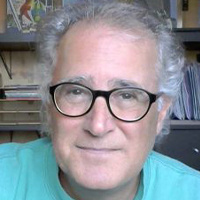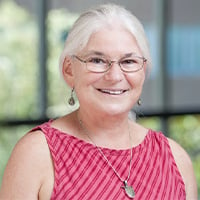
The Mathematics Department offers a rich curriculum to meet the diverse needs of students at Laney College. Our course offerings include those transferable to four-year colleges/universities, those tailored for programs in career and technical education, along with those designed to help students strengthen their basic skills.
Department Overview
Explore the diverse and comprehensive curriculum designed to meet the needs of every student. Whether you're planning to transfer to a four-year university, aiming to enhance your career and technical education, or looking to build a solid foundation in basic math skills, our program has something for you.
 Math Department Jobs
Math Department Jobs
The Laney College Math Department employs mathematics professionals as instructors and students as tutors.
Faculty Positions
Full-time, tenure track faculty positions in the Math Department, when they become available, are advertised on the Peralta Community College District website. Full details about minimum qualifications, desirable qualifications, application procedures, and deadline dates are included on the website.
The Math Department also employs a large number of adjunct faculty members. All adjunct faculty members must have the minimum qualifications to teach community college level math courses as defined by the State of California. If you are interested in applying for an adjunct position, you should contact the Department Chair by email attaching a resume of your qualifications. You can also contact the Department Chair by phone by calling the Math Lab at 510-464-3448.
Student Tutor Positions
At Laney, we hire student tutors for mathematics and statistics. On campus we have a beloved space for math & stats tutoring, called the Math Lab, located in G-201. Most of our tutors work there and help students with many different classes, both in-person and on Zoom. We also hire Embedded Tutors, who work with just a single class (e.g. Calculus I) or a single instructor. Working as a tutor is great for students who want to master their knowledge of mathematics and statistics. If you have taken any math or stats classes and received good grades (A or B) in them, you may apply to become a tutor.
The tutors get paid $16.89/hour, for a maximum of 20 hours/week during the semester. If you work somewhere else in the Peralta Community College district at the same time, you can only have a combined total of 20 hours per week. During each semester you work as a tutor in the Laney Math Lab, you must be enrolled in at least one class (can be a non-credit class) at one of the Peralta colleges. There is a mandatory paid training session at the beginning of each semester.
The best times to apply are at the beginning or end of Summer. We usually hire people for the Fall Semester who work throughout the academic year. Occasionally we hire tutors mid-semester, but this is rare. You may apply at any time though.
To apply, fill out a Math Lab Tutor Interest Form. If you have any questions, email the Math Lab Techs (Gina & Haley) at laney-mathlab@peralta.edu.
 Career Opportunities
Career Opportunities
A strong foundation in mathematics opens the door to a wide range of rewarding career opportunities. Some of the common career paths for those who take math courses at Laney include:
- Data Analysis/Data Science: Data analysts and data scientists use mathematical and statistical techniques to analyze large datasets and extract valuable insights. They help organizations in various industries—such as tech, healthcare, and finance—make data-driven decisions and predictions.
- Computer Science: Math graduates can pursue careers in computer science, where they apply mathematical logic, algorithms, and computational theories to develop software, improve systems, and solve complex technical challenges in areas like artificial intelligence, cybersecurity, and programming.
- Engineering: Engineers use mathematical principles to design, test, and optimize systems and structures. Whether in civil, mechanical, electrical, or aerospace engineering, a solid grasp of math is essential for problem-solving and innovation in technical fields.
- Finance: In finance, math graduates can apply their quantitative skills to roles like financial analyst, risk analyst, or investment banker, where they use mathematical models to analyze markets, evaluate investment opportunities, and manage risk. Roles in quantitative finance, including quantitative analyst (quant), are also popular among math graduates.
- Mathematical Modelling: Mathematical modelers create abstract representations of real-world systems, from predicting climate change to simulating disease spread. These models are crucial for research, decision-making, and problem-solving across industries like healthcare, engineering, and environmental science.
- Mathematics Education: Math graduates with a passion for teaching can pursue careers in education, becoming math teachers at the K-12 level or professors at colleges and universities, shaping the next generation of mathematicians and problem-solvers.
- Mathematician: Mathematicians conduct research to develop new mathematical theories, techniques, and solutions to abstract and applied problems. They often work in academia, government research labs, or private industry, contributing to advances in fields like cryptography, engineering, and economics.
These are just a few examples, and there are many other career paths available to individuals who take math courses at Laney. The versatility of math skills allows graduates to adapt to a wide variety of industries and roles, making a math degree an invaluable asset in today’s job market.
Contact Us
Math Department Chair
Fred Bourgoin
fbourgoin@peralta.edu
Dean
Tarek ElJarrari
teljarrari@peralta.edu
Learning & Career Pathways
Science, Engineering & Math
Division
Division of Mathematics, Sciences & Engineering
Degrees

This degree is designed for students who complete the first two years of college math. It differs from our transfer degree in the IGETC or CSU Breadth Requirements.

This Degree is designed to prepare students for a seamless transfer with junior status and priority admission to a local CSU campus to a program or major in Mathematics or similar major for completion of a baccalaureate degree.

This degree is designed for students who complete the first two years of college math, statistical analysis, and computer programming.
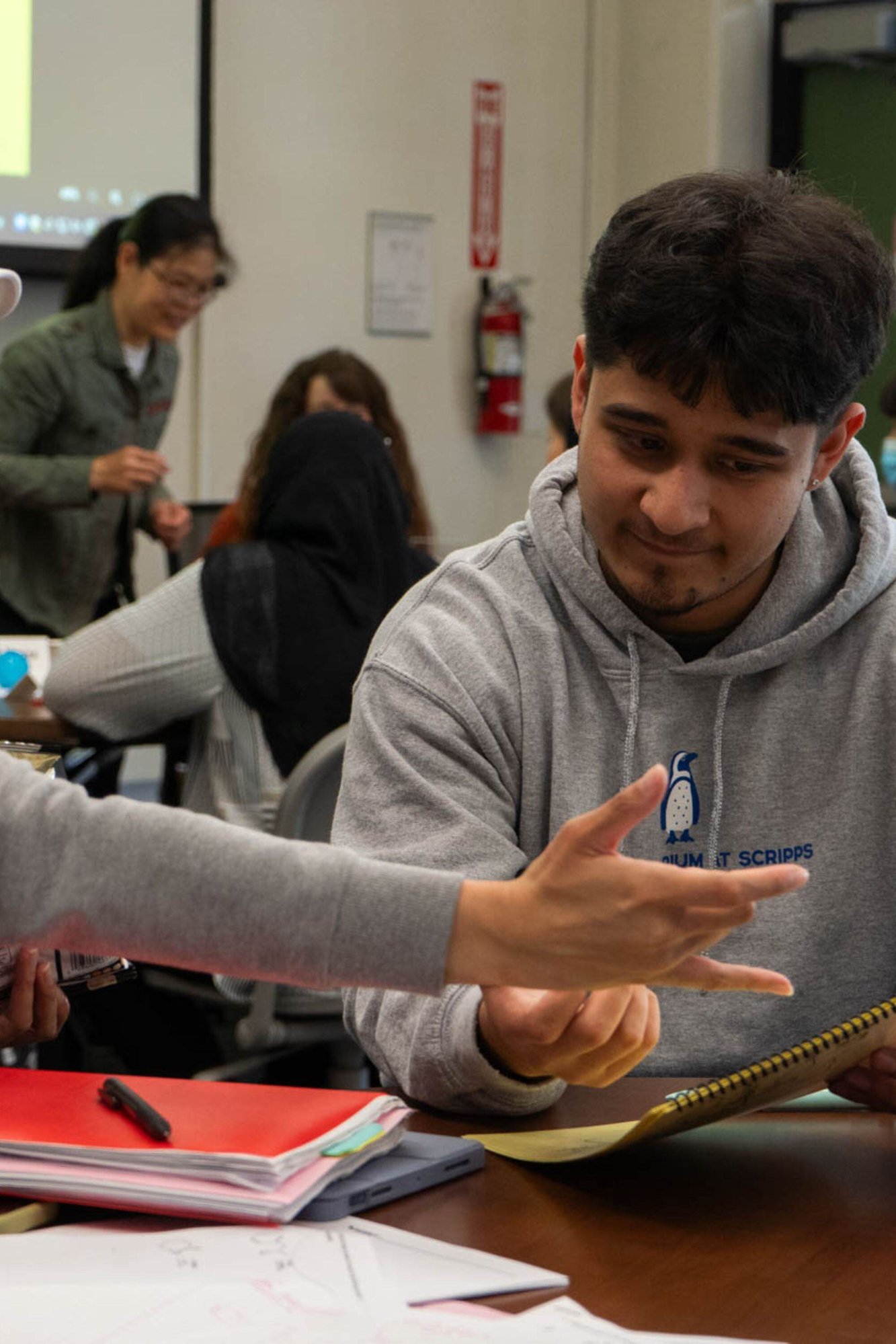
Laney College has a tutoring center for Math and Statistics, known as the “Math Lab”. Come by G-201 to get help in your math and stats classes or simply to use the space to study!
Student Resources:
- Tutoring with student tutors and instructors. No appointment needed. See tutor hours and availability in the schedule below.
- Math and Stats tutoring in foreign languages, including Mandarin, Cantonese, Spanish, Vietnamese, French, and German.
- Textbooks and calculators available for checkout or use in the Lab.
- Study space and 7 computers available for students.
Want To Be A Tutor?
We hire tutors every semester for up to 20 hours per week. Questions? Email laney-mathlab@peralta.edu
MATH LAB CONTACT INFO
Phone: (510) 464-3448
laney-mathlab@peralta.edu
Instructional Assistant
TBD
Math Lab Hours
Monday - Thursday 10:00am - 6:00pm
Friday 10:00am - 12:00pm
Math Lab Location
Building G, Room 201 (G-201), 2nd Floor
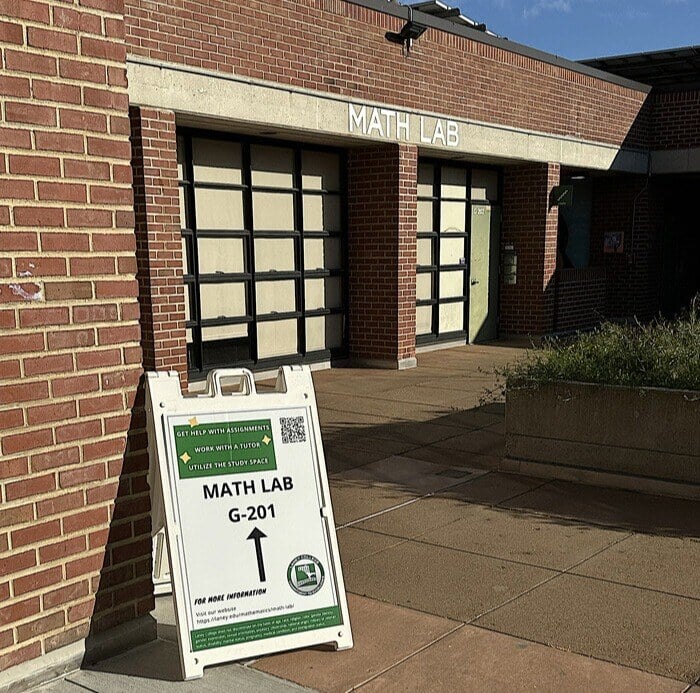
View our tutoring schedule to see which tutors are available for specific math subjects and language preferences. Connect with the support you need to succeed!
Receive updates on schedule changes, find a study group for your classes, hear about events, and more!
MESA supports students interested in STEM.
An equity-focused program dedicated to assist earning a degree in a math based field.
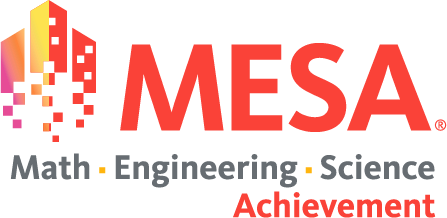
Pre-transfer level math includes foundational courses designed to help students build the essential math skills needed for success in college-level (transferable) math classes. These courses typically focus on topics such as basic arithmetic, introductory algebra, geometry, or statistics.
The goal of pre-transfer level math is to prepare students for advanced coursework required for degrees, certificates, or transfer to a four-year institution. Whether you're brushing up on fundamentals or developing a stronger understanding of key concepts, these classes provide a supportive environment to help you progress confidently toward your academic and career goals.
Math 203 - Intermediate Algebra
Units: 4
Class: 5 hours lecture (GR)
Prerequisite(s) MATH 201 or MATH 210A-D or Appropriate placement through multiple-measures assessment process.
Recommended preparation: MATH 202
Not open for credit to students who have completed or are currently enrolled in MATH 211ABCD
Description: Intermediate algebraic operations: Real number properties and operations; solutions and graphs of linear equations in one and two variables; absolute value equations; advanced factoring; complex numbers, quadratic equations and systems of quadratic equations; conics; determinants; solutions and graphs of first-degree, quadratic and rational inequalities; exponential and logarithmic functions; and sequences and series.
Students enrolled in Laney College's Gateway to College Program will need to contact the Gateway office at gateway@peralta.edu to enroll in Math 203.
Math 210 - Elementary Algebra
The Math 210 self-paced classes (ABCD) are taken sequentially, 1 unit at a time. Completing all four classes is equivalent completing a 4-unit class in Elementary Algebra. Each course (ABCD) is one unit of credit. Classes are Modular and open-entry/open-exit.
Prerequisite(s) MATH 225 or MATH 250 or MATH 251D or MATH 253 or appropriate placement through multiple measures assessment process.
The Math 210 courses have no meeting times, since they are self-paced courses. All students enrolled may use the Math Lab (G-201) to complete work and access tutoring, but there is no mandatory attendance requirement. These self-paced courses do not offer direct instruction. These courses are offered through Canvas and use MyOpenMath, a free online homework system. During this remote learning time, ALL of the homework and the Exams are offered online through Canvas. Within Canvas, there are a series of video homework assignments that lead to a larger homework assignment tied to each learning goal for each unit. There is also a free online textbook that you may download and use (or even order, if you prefer).
Descriptions of each class below:
210A - Real number properties, the four basic operations with integers and rational numbers, solutions of linear equations.
210B - Applications utilizing rst-degree equations, the four basic operations ith polynomials, integral exponents, factoring.
210C - Algebraic fractions, graphs of linear equations, solutions of linear systems.
210D - Solutions of first-degree inequalities, graphs of linear inequalities in two variables, radical expressions, solutions to quadratic equations.
To verify your eligibility and to enroll, click the link below. Submitting this form is a request for an add card to the class(es) listed above. Once you receive the add card, it is entirely your responsibility to enroll in the class.
Math 211 - Intermediate Algebra
The Math 211 self-paced classes (A, B, C, and D) are taken sequentially, 1 unit at a time. Completing all four classes is equivalent completing a 4-unit class in Intermediate Algebra. Each course (A, B, C, and D) is one unit of credit. Classes are Modular and open-entry/open-exit. Prerequisite(s) MATH 201 or MATH 210D or appropriate placement through multiple-measures assessment process. Recommended preparation MATH 202.
The Math 211 courses have no meeting times, since they are self-paced courses. All students enrolled may use the Math Lab (G-201) to complete work and access tutoring, but there is no mandatory attendance requirement. These self-paced courses do not offer direct instruction. These courses are offered through Canvas and use MyOpenMath, a free online homework system. During this remote learning time, ALL of the homework and the Exams are offered online through Canvas. Within Canvas, there are a series of video homework assignments that lead to a larger homework assignment tied to each learning goal for each unit. There is also a free online textbook that you may download and use (or even order, if you prefer).
Descriptions of each class below:
211A - Real number properties and operations, absolute value equations, solutions and graphs of linear equations in one and two variables, various equations of lines.
211B - Polynomial operations and advanced factoring, rational expressions and equations, exponents and radicals, complex numbers.
211C - Quadratic equations, conics, systems of linear and quadratic equations, determinants.
211D - Solutions and graphs of first-degree, quadratic and rational inequalities, exponential and logarithmic functions, sequences and series.
To verify your eligibility and to enroll, click the link below. Submitting this form is a request for an add card to the class(es) listed above. Once you receive the add card, it is entirely your responsibility to enroll in the class.
Math 220 - Technical Math With Algebra
The Math 220 self-paced classes (A, B, C, D, E, F and G) are taken sequentially. Math A, B, C, D, E and F are ½ unit each, and Math 220G is a 1-unit class. Completing all seven Math 220 classes is equivalent completing a 4-unit class in Technical Math with Algebra. Classes are Modular and open-entry/open-exit. Recommended preparation MATH 253 or MATH 250 or appropriate placement through multiple-measures assessment process.
The Math 220 series is tailored for some of the vocational education programs on Laney campus. Students may enroll in these one- or half-unit modules at any time during the semester, and we ask that you are enrolled in at least one section while completing coursework in the lab during each semester. Technical Math does not use computer based homework systems. We assign suggested homework for students to complete from the textbooks. The Math 220 courses have no meeting times, since they are self-paced courses. All students enrolled may use the Math Lab (G-201) to complete work and access tutoring, but there is no mandatory attendance requirement.
Descriptions of each class below:
220A – Selected topics in algebra useful for the vocations: Signed numbers, exponents, roots, order of operations; applications to the trades.
Selected topics in algebra useful for the vocations: Algebraic expressions, solving linea
220B – Selected topics in algebra useful for the vocations: Algebraic expressions, solving linear equations, formulas, ratio and proportion, word problems; applications to the trades.
220C - Selected topics in algebra useful for the vocations: Systems of equations, solving by substitution, solving by elimination, word problems; applications to the trades.
220D - Selected topics in algebra useful for the vocations: Multiplying and dividing simple algebraic expressions, negative exponents, scientific notation, quadratic equations, word problems; applications to the trades.
220E - Practical plane geometry: Angles, polygons, types of triangles, Pythagorean Theorem, circles, perimeter and area of plane figures examples and problems drawn from the trades.
220F - Practical solid geometry and geometric constructions: Definitions, surface area volumes of prisms, pyramids, cylinders, cones, spheres constructions of specific lines, angles, and triangles.
220G - Trigonometry useful for the vocations: Right triangle trigonometry, angle measurement in degrees and radians, basic trigonometric functions of acute and obtuse angles, solving triangles; applications to the trades.
Math 220 is only available to students enrolled in Career and Technical Education Programs at Laney College that specifically require Math 220 classes for certificates or degrees. Students can enroll themselves in the Math 220 series of classes, but it’s best to consult with your counselor first.
FREE Open Source Algebra Courses
Disclaimer: Since, January 2018, California state law allows and encourages all students to enroll directly in Transfer-Level math classes, rather than passing the traditional Pre-requisites for those classes first. As a student, you have the right to enroll into one of Laney’s Transfer-Level classes for your first math class!
The same law prohibits community colleges from offering Pre-Transfer Level math classes, except in some special circumstances and only for specific groups of students.
- Math 1 – Pre-Calculus
- Math 13 – Statistics
- Math 15 – Math for the Liberal Arts
- Math 50 – Trigonometry

Emeritus Faculty
.png?width=500&height=330&name=Laney%20College%20Enrollment%20(3).png)
Unlock Financial Aid for College Expenses
 Transfer To A University
Transfer To A University
Laney College's AA-T and AS-T degrees guarantee junior standing admission to the CSU system, with priority for local CSU campuses in similar programs. Consult a counselor or transfer specialist for details.
.png?width=60&height=60&name=CTE%20(6).png) Meet With A Counselor
Meet With A Counselor
Counselors can help you create a Student Educational Plan (SEP) to outline the courses needed for an Associate’s degree, transfer, or certificate, even if you're unsure of your educational goals.
.png?width=60&height=60&name=CTE%20(10).png) Uncertain About Your Career Path?
Uncertain About Your Career Path?
We provide support with career exploration, self-assessment as well as the major and career decision making process to help all Laney students achieve career satisfaction and success.

